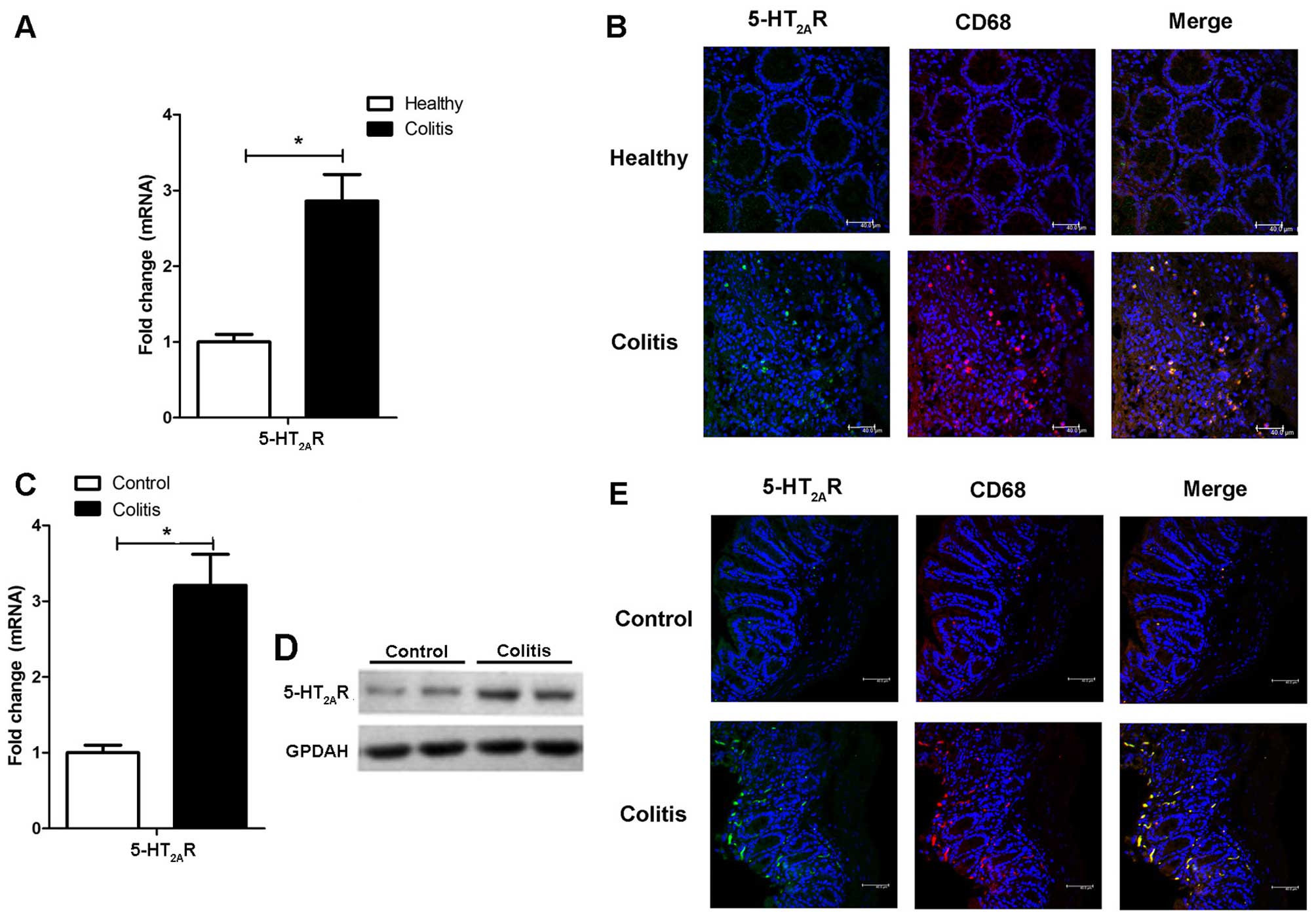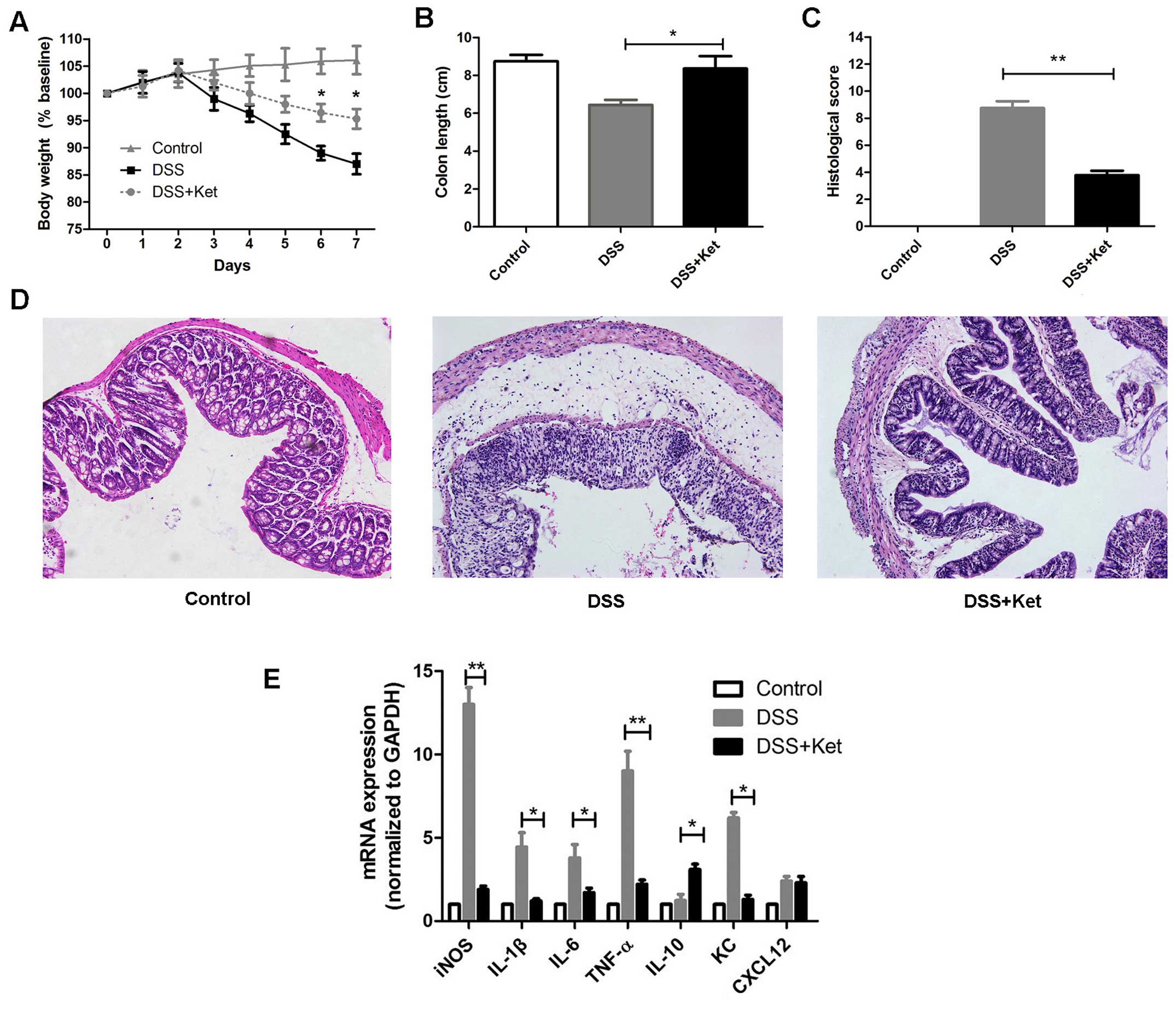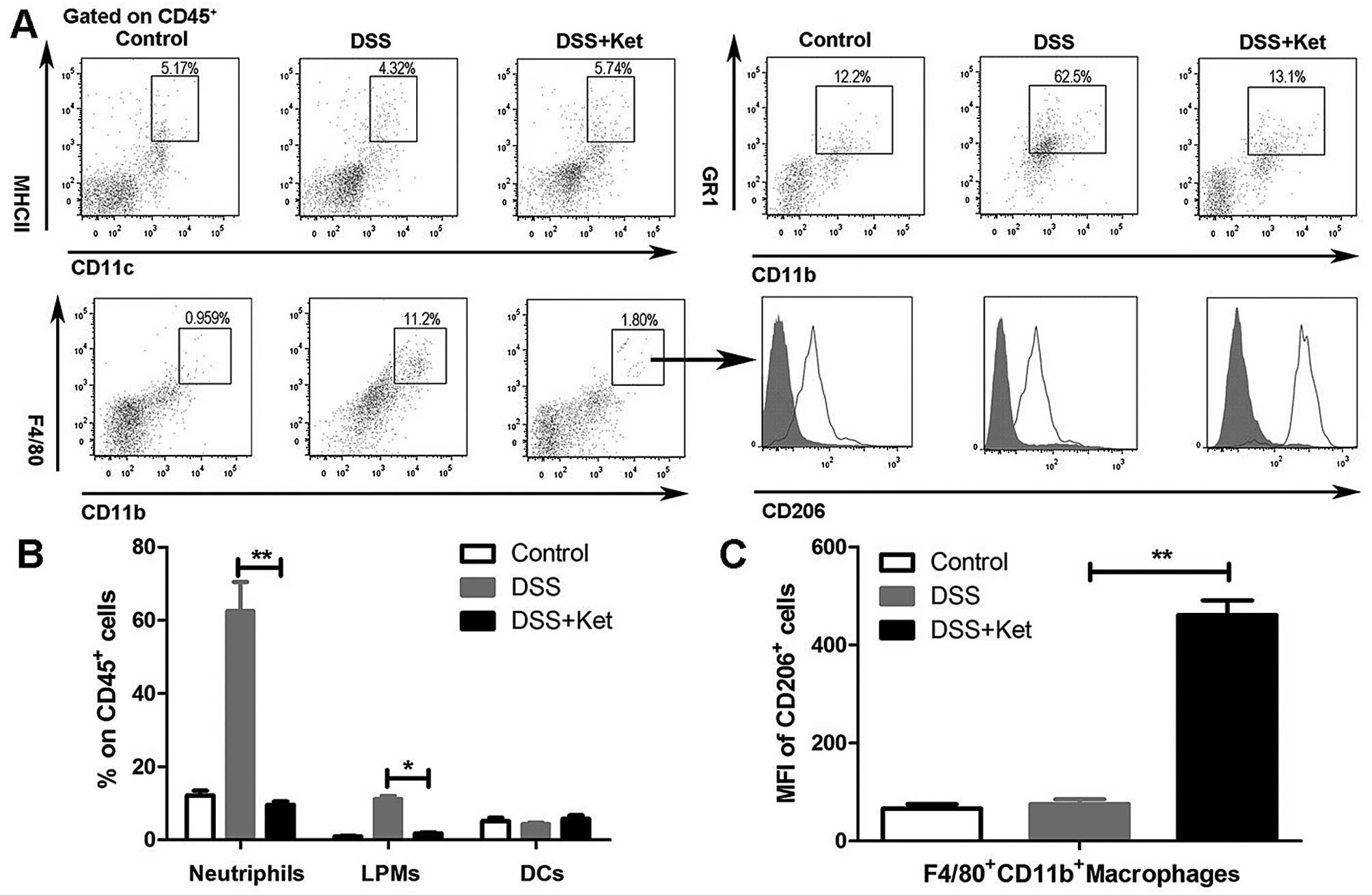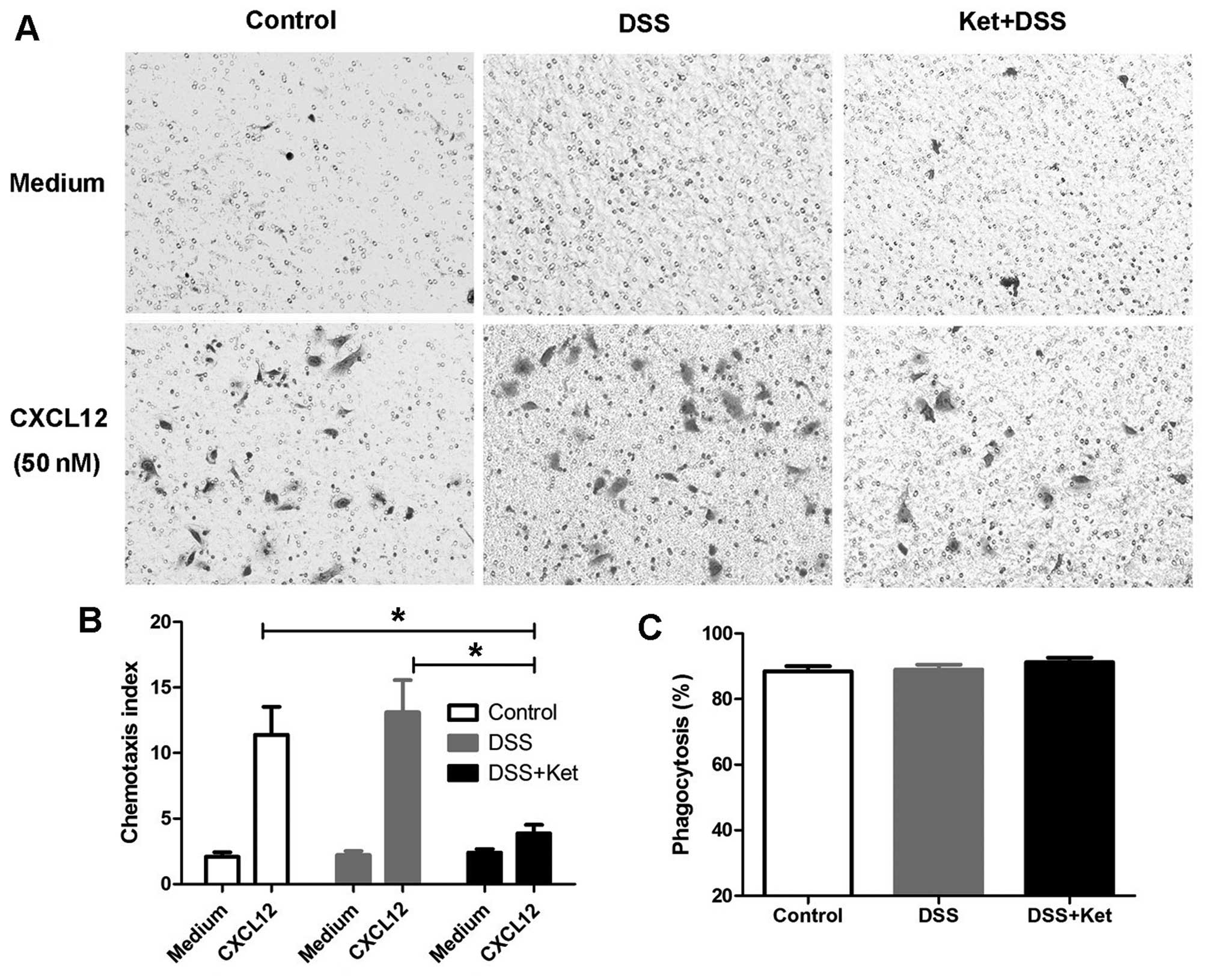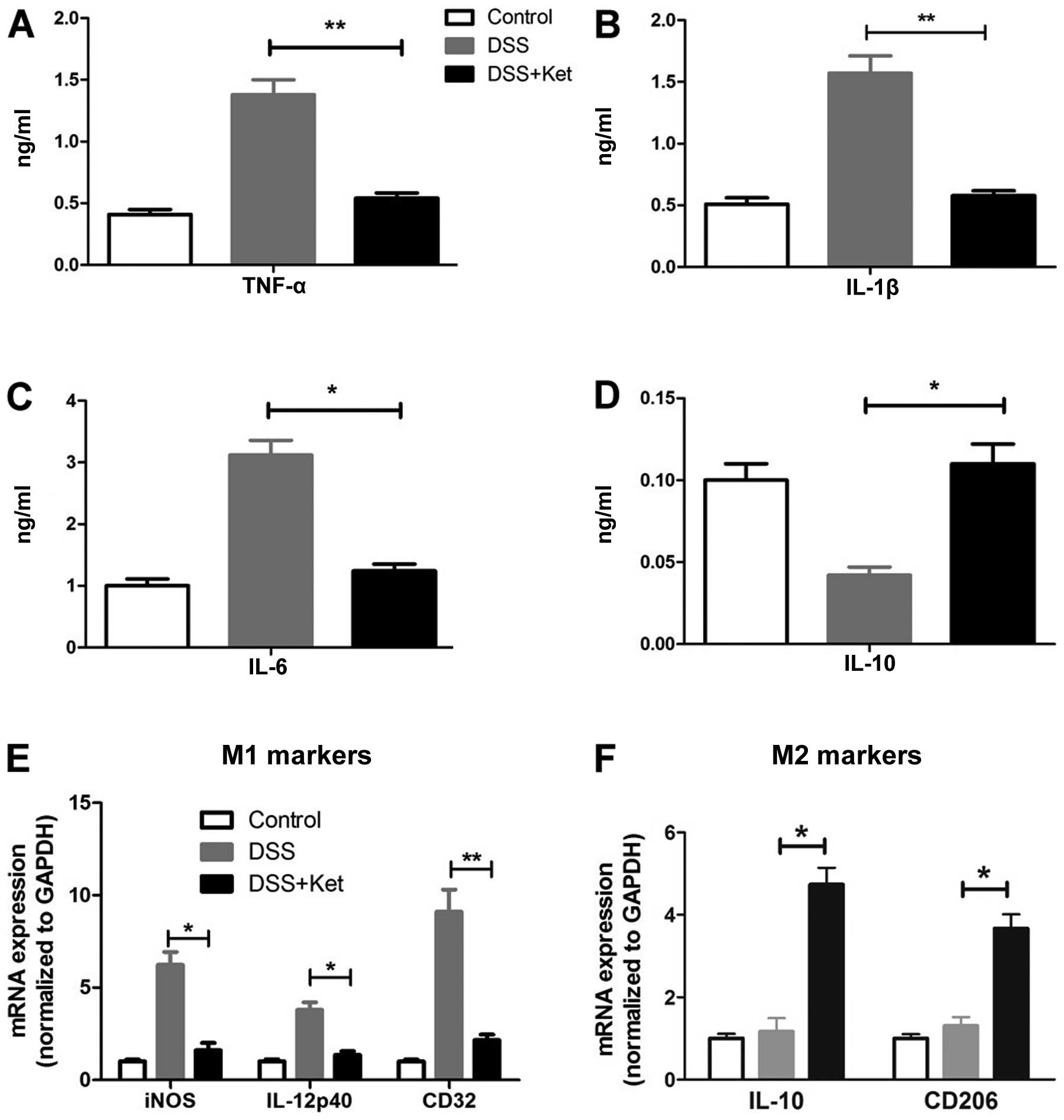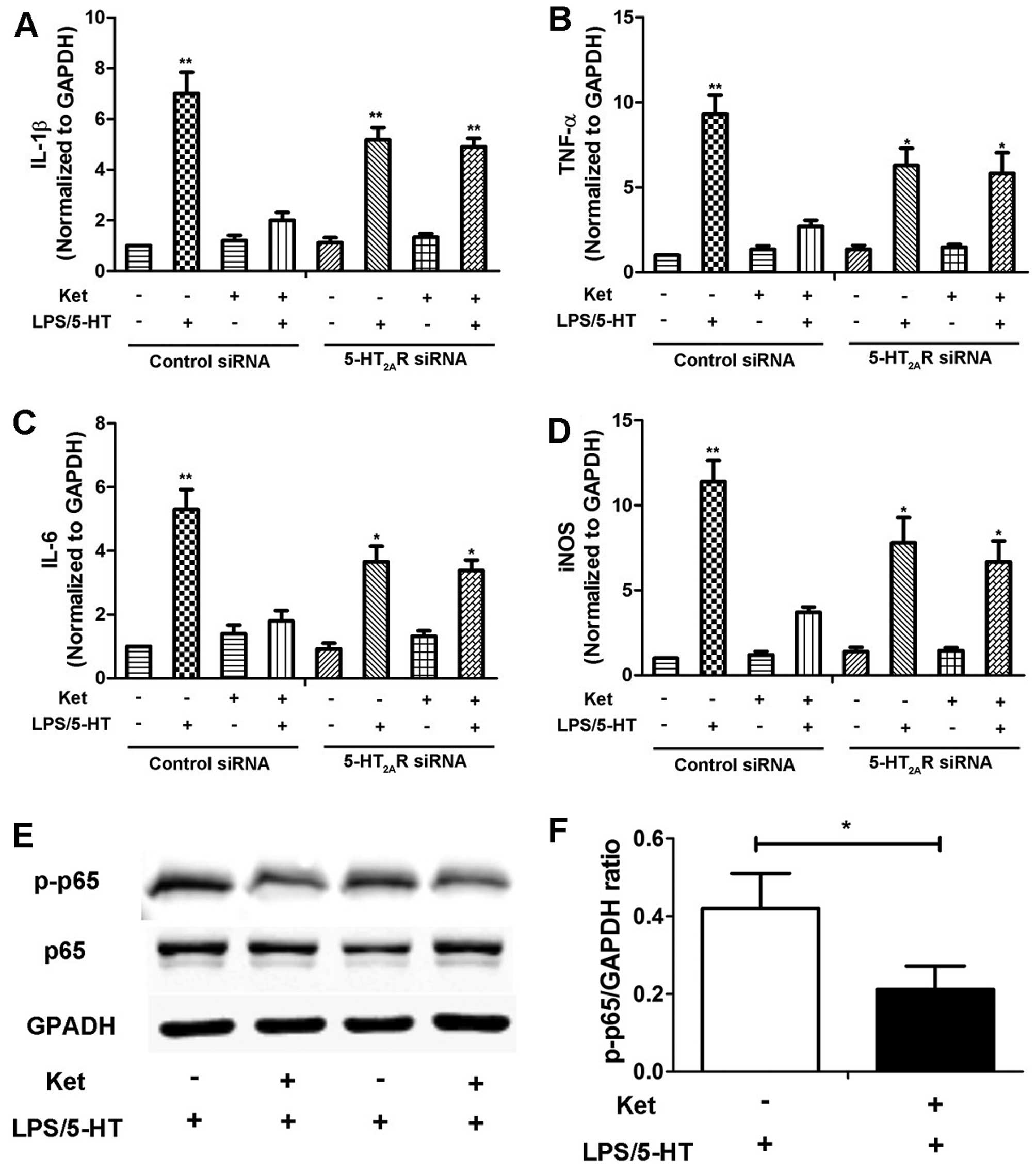|
1
|
Ravi A, Garg P and Sitaraman SV: Matrix
metalloproteinases in inflammatory bowel disease: Boon or a bane?
Inflamm Bowel Dis. 13:97–107. 2007. View Article : Google Scholar : PubMed/NCBI
|
|
2
|
Linden DR, Chen JX, Gershon MD, Sharkey KA
and Mawe GM: Serotonin availability is increased in mucosa of
guinea pigs with TNBS-induced colitis. Am J Physiol-Gastr L.
285:G207–G216. 2003.
|
|
3
|
Oshima S, Fujimura M and Fujimiya M:
Changes in number of serotonin-containing cells and serotonin
levels in the intestinal mucosa of rats with colitis induced by
dextran sodium sulfate. Histochem Cell Biol. 112:257–263. 1999.
View Article : Google Scholar : PubMed/NCBI
|
|
4
|
Bishop AE, Pietroletti R, Taat CW,
Brummelkamp WH and Polak JM: Increased populations of endocrine
cells in Crohn's ileitis. Virchows Arch A Pathol Anat Histopathol.
410:391–396. 1987. View Article : Google Scholar : PubMed/NCBI
|
|
5
|
Ghia JE, Li N, Wang HQ, Collins M, Deng
YK, El-Sharkawy RT, Cote F, Mallet J and Khan WI: Serotonin has a
key role in pathogenesis of experimental colitis. Gastroenterology.
137:1649–1660. 2009. View Article : Google Scholar : PubMed/NCBI
|
|
6
|
Coates MD, Mahoney CR, Linden DR, Sampson
JE, Chen J, Blaszyk H, Crowell MD, Sharkey KA, Gershon MD and Mawe
GM: Molecular defects in mucosal serotonin content and decreased
serotonin reuptake transporter in ulcerative colitis and irritable
bowel syndrome. Gastroenterology. 126:1657–1664. 2004. View Article : Google Scholar : PubMed/NCBI
|
|
7
|
Bischoff SC, Mailer R, Pabst O, Weier G,
Sedlik W, Li Z, Chen JJ, Murphy DL and Gershon MD: Role of
serotonin in intestinal inflammation: Knockout of serotonin
reuptake transporter exacerbates 2,4,6-trinitrobenzene sulfonic
acid colitis in mice. Am J Physiol Gastrointest Liver Physiol.
296:G685–G695. 2009. View Article : Google Scholar
|
|
8
|
Regmi SC, Park SY, Ku SK and Kim JA:
Serotonin regulates innate immune responses of colon epithelial
cells through Nox2-derived reactive oxygen species. Free Radic Biol
Med. 69:377–389. 2014. View Article : Google Scholar : PubMed/NCBI
|
|
9
|
Wang D, Chen T, Gao Y, Quirion R and Hong
Y: Inhibition of SNL-induced upregulation of CGRP and NPY in the
spinal cord and dorsal root ganglia by the 5-HT(2A) receptor
antagonist ketanserin in rats. Pharmacol Biochem Behav.
101:379–386. 2012. View Article : Google Scholar : PubMed/NCBI
|
|
10
|
Ito T, Ikeda U, Shimpo M, Yamamoto K and
Shimada K: Serotonin increases interleukin-6 synthesis in human
vascular smooth muscle cells. Circulation. 102:2522–2527. 2000.
View Article : Google Scholar : PubMed/NCBI
|
|
11
|
Lau WK, Chan SC, Law AC, Ip MS and Mak JC:
The role of MAPK and Nrf2 pathways in ketanserin-elicited
attenuation of cigarette smoke-induced IL-8 production in human
bronchial epithelial cells. Toxicol Sci. 125:569–577. 2012.
View Article : Google Scholar
|
|
12
|
Liu C, Zhang X, Zhou JX, Wei W, Liu DH, Ke
P, Zhang GF, Cai GJ and Su DF: The protective action of ketanserin
against lipopolysaccharide-induced shock in mice is mediated by
inhibiting inducible NO synthase expression via the MEK/ERK
pathway. Free Radic Biol Med. 65:658–666. 2013. View Article : Google Scholar : PubMed/NCBI
|
|
13
|
Liu C, Zhang GF, Song SW, Cai GJ, Liu WH,
Miao CY and Su DF: Effects of ketanserin on endotoxic shock and
baroreflex function in rodents. J Infect Dis. 204:1605–1612. 2011.
View Article : Google Scholar : PubMed/NCBI
|
|
14
|
Martinez FO, Sica A, Mantovani A and
Locati M: Macrophage activation and polarization. Front Biosci.
13:453–461. 2008. View
Article : Google Scholar
|
|
15
|
Mosser DM and Edwards JP: Exploring the
full spectrum of macrophage activation. Nat Rev Immunol. 8:958–969.
2008. View
Article : Google Scholar : PubMed/NCBI
|
|
16
|
Bettelli E, Carrier Y, Gao W, Korn T,
Strom TB, Oukka M, Weiner HL and Kuchroo VK: Reciprocal
developmental pathways for the generation of pathogenic effector
TH17 and regulatory T cells. Nature. 441:235–238. 2006. View Article : Google Scholar : PubMed/NCBI
|
|
17
|
Xie N, Cui H, Banerjee S, Tan Z, Salomao
R, Fu M, Abraham E, Thannickal VJ and Liu G: miR-27a regulates
inflammatory response of macrophages by targeting IL-10. J Immunol.
193:327–334. 2014. View Article : Google Scholar : PubMed/NCBI
|
|
18
|
Hernandez ME, Martinez-Fong D, Perez-Tapia
M, Estrada-Garcia I, Estrada-Parra S and Pavon L: Evaluation of the
effect of selective serotonin-reuptake inhibitors on lymphocyte
subsets in patients with a major depressive disorder. Eur
Neuropsychopharmacol. 20:88–95. 2010. View Article : Google Scholar
|
|
19
|
Young MR and Matthews JP: Serotonin
regulation of T-cell subpopulations and of macrophage accessory
function. Immunology. 84:148–152. 1995.PubMed/NCBI
|
|
20
|
Berndt BE, Zhang M, Chen GH, Huffnagle GB
and Kao JY: The role of dendritic cells in the development of acute
dextran sulfate sodium colitis. J Immunol. 179:6255–6262. 2007.
View Article : Google Scholar : PubMed/NCBI
|
|
21
|
Kitajima S, Takuma S and Morimoto M:
Changes in colonic mucosal permeability in mouse colitis induced
with dextran sulfate sodium. Exp Anim. 48:137–143. 1999. View Article : Google Scholar : PubMed/NCBI
|
|
22
|
Hunter MM, Wang A, Parhar KS, Johnston MJ,
Van Rooijen N, Beck PL and McKay DM: In vitro-derived alternatively
activated macrophages reduce colonic inflammation in mice.
Gastroenterology. 138:1395–1405. 2010. View Article : Google Scholar : PubMed/NCBI
|
|
23
|
Qualls JE, Kaplan AM, van Rooijen N and
Cohen DA: Suppression of experimental colitis by intestinal
mononuclear phagocytes. J Leukoc Biol. 80:802–815. 2006. View Article : Google Scholar : PubMed/NCBI
|
|
24
|
Beider K, Bitner H, Leiba M, Gutwein O,
Koren-Michowitz M, Ostrovsky O, Abraham M, Wald H, Galun E, Peled A
and Nagler A: Multiple myeloma cells recruit tumor-supportive
macrophages through the CXCR4/CXCL12 axis and promote their
polarization toward the M2 phenotype. Oncotarget. 5:11283–11296.
2014. View Article : Google Scholar : PubMed/NCBI
|
|
25
|
Kim D, Kim J, Yoon JH, Ghim J, Yea K, Song
P, Park S, Lee A, Hong CP, Jang MS, et al: CXCL12 secreted from
adipose tissue recruits macrophages and induces insulin resistance
in mice. Diabetologia. 57:1456–1465. 2014. View Article : Google Scholar : PubMed/NCBI
|
|
26
|
Maneglier B, Guillemin G, Clayette P,
Rogez-Kreuz C, Brew B, Dormont D, Advenier C, Therond P and
Spreux-Varoquaux O: Serotonin decreases HIV-1 replication in
primary cultures of human macrophages through 5-HT(1A) receptors.
Br J Pharmacol. 154:174–182. 2008. View Article : Google Scholar : PubMed/NCBI
|
|
27
|
Hayden MS, West AP and Ghosh S: NF-kappaB
and the immune response. Oncogene. 25:6758–6780. 2006. View Article : Google Scholar : PubMed/NCBI
|
|
28
|
Atreya I, Atreya R and Neurath MF:
NF-kappaB in inflammatory bowel disease. J Intern Med. 263:591–596.
2008. View Article : Google Scholar : PubMed/NCBI
|
|
29
|
Steinbach EC and Plevy SE: The role of
macrophages and dendritic cells in the initiation of inflammation
in IBD. Inflamm Bowel Dis. 20:166–175. 2014. View Article : Google Scholar :
|
|
30
|
Nathan C and Ding AH: Nonresolving
Inflammation. Cell. 140:871–882. 2010. View Article : Google Scholar : PubMed/NCBI
|
|
31
|
Murray PJ and Wynn TA: Protective and
pathogenic functions of macrophage subsets. Nat Rev Immunol.
11:723–737. 2011. View Article : Google Scholar : PubMed/NCBI
|
|
32
|
Smith AM, Rahman FZ, Hayee B, Graham SJ,
Marks DJ, Sewell GW, Palmer CD, Wilde J, Foxwell BM, Gloger IS, et
al: Disordered macrophage cytokine secretion underlies impaired
acute inflammation and bacterial clearance in Crohn's disease. J
Exp Med. 206:1883–1897. 2009. View Article : Google Scholar : PubMed/NCBI
|
|
33
|
Ahonen A, Kyosola K and Penttila O:
Enterochromaffin cells in macrophages in ulcerative colitis and
irritable colon. Ann Clin Res. 8:1–7. 1976.PubMed/NCBI
|
|
34
|
Wetterberg J, Taher C, Azmitia EC and
El-Nour H: Time-dependent modulation of serotonin and its receptors
1A and 2A expression in allergic contact dermatitis. J Eur Acad
Dermatol. 25:1200–1205. 2011. View Article : Google Scholar
|















